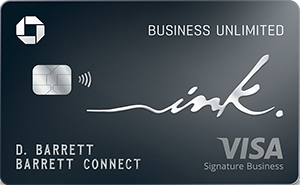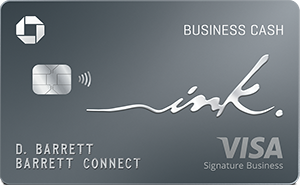In 2017, Congress passed the Tax Cuts and Job Act (TCJA), which introduced sweeping changes to the tax code, including a tax cut called the Qualified Business Income deduction. This bill allowed thousands of small businesses the flexibility to increase their inventory, expand their service area, or invest in marketing to grow their business.
Part of that tax bill is set to expire soon, which could have a massive impact on many small businesses. Here’s what small business owners need to know.
What is the qualified business income deduction?
The Qualified Business Income (QBI) deduction is a tax benefit introduced by the Tax Cuts and Job Act of 2017. It allows eligible sole proprietorships, partnerships, S corporations, and some trusts and estates to deduct up to 20% of their income and 20% of qualified real estate investment trust (REIT) dividends from their taxable income.
Here’s how this works for most business owners: Say you’re a freelancer or a small business owner who earned $100,000 in income this year. Before the bill was passed, you’d pay taxes on that entire amount (minus whatever other tax benefits you’re entitled to). Based on the current tax brackets, a single filer would pay 22% of income in taxes, so $22,000 would go to Uncle Sam.
The QBI allows eligible business owners to deduct 20% from their taxable income. So with the QBI in place, a small business owner would pay taxes on only $80,000. While you’re still in the same tax bracket, you’d pay just $17,600 — meaning you’ll save $4,400 in taxes.
Larger businesses with higher profits, of course, save more. Let’s say your business makes $500,000 in income. Before applying the QBI deduction, you’d pay taxes on the entire $500,000. At a tax rate of 35% (for single filers), you would pay $175,000 in taxes.
Why a Business Credit Card Could Transform Your Small Business
These business credit cards that offer a convenient and efficient way to separate personal and business expenses, simplifying accounting and tax reporting.
Additionally, business cards can provide valuable perks such as rewards points, cashback, and expense tracking tools, enhancing financial management and the potential to help save money in the long run.

Ink Business Unlimited® Credit Card |
Earn $900 bonus cash back Earn $900 bonus cash back after you spend $6,000 on purchases in the first 3 months from account opening. |
Earn unlimited 1.5% cash back on every purchase Earn unlimited 1.5% cash back on every purchase made for your business |
Purchases: 0% Intro APR on Purchases, 12 months Balance Transfers: N/A
Regular: |
|

Ink Business Cash® Credit Card |
Earn up to $750 bonus cash back Earn $350 when you spend $3,000 on purchases in the first three months and an additional $400 when you spend $6,000 on purchases in the first six months after account opening. |
Earn 5% cash back in select business categories Earn 5% cash back on the first $25,000 spent in combined purchases at office supply stores and on internet, cable and phone services each account anniversary year. Earn 2% cash back on the first $25,000 spent in combined purchases at gas stations and restaurants each account anniversary year. Earn 1% cash back on all other card purchases with no limit to the amount you can earn. |
Purchases: 0% Intro APR on Purchases, 12 months Balance Transfers: N/A
Regular: |
The QBI deduction allows you to reduce your taxable income to $400,000, resulting in a tax bill of $140,000 at the same 35% tax rate. With the QBI deduction, a business making $500,000 in income will save $35,000 per year in taxes.
The QBI is set to expire at the end of 2025
Some parts of the TCJA bill are soon set to expire. While the corporate tax deductions are permanent, the QBI deductions are set to expire at the end of 2025 unless Congress extends it or passes a new bill with similar provisions.
This could lead to a large tax increase for some small businesses. Some experts believe the bill is too expensive and could cost $700 billion in the next decade. Other experts are pushing Congress to pass a different bill that will make the QBI permanent. Either way, small business owners should be paying attention.
How will the expiration of QBI impact your business?
If the QBI is allowed to expire, your annual tax bill could increase significantly. While the deduction favors larger, more profitable businesses (the higher your tax bill, the more you can save), it does help reduce tax obligations for thousands of small businesses as well. Consider taking additional steps, like opening a solo 401K or an IRA, to reduce your tax liability.
